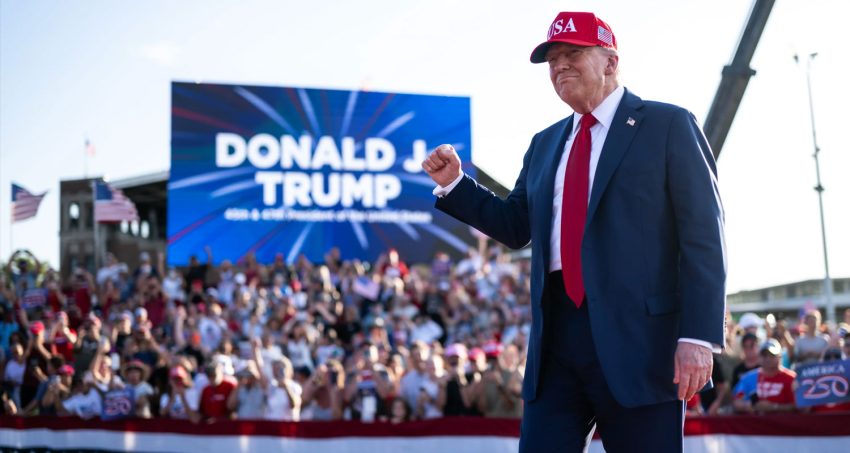The White House announced a near-10% stake in chip maker Intel on Friday that converts government grants into an equity share. Trump on Monday doubled down on the idea of deals in other sectors similar to the one announced with Intel.
The administration’s approach does away with decades of thinking about the US economy, where the government took corporate stakes in rare emergencies like the 2008 global financial crisis and the subsequent bailout of US car companies. Intel is struggling, but it still has a cash cushion of $9-billion and a market value of $105-billion.
To critics, the Intel move — along with the White House’s full-court press to get the US Federal Reserve to lower interest rates, its use of emergency powers to slap tariffs on imported goods and involvement in different mergers — threatens the business world’s nimbleness.
“We’re moving from a pure capitalist economy to a much more state-engaged economy. That’s a huge change for America and over where we’ve been. I’ve never seen an era like this,” said Bill George, former Medtronic CEO and executive education fellow at Harvard Business School.
“I will make deals like that for our country all day long,” Trump said in a post on Truth Social on Monday, touting the company’s rising stock price.
Trump said in his post that he would help companies that make similar “lucrative” deals with US states, but didn’t provide details. Intel had promised to use the Chips Act money to build plants in the US.
Risks
However, the risks of the government’s involvement are no more apparent than in Intel’s own regulatory filing on Monday, where it laid out several new risk factors to having the government invested in the company — from potentially harming international sales, to limiting the chip maker’s ability to secure future government grants, or subjecting the company to additional regulations or restrictions in other countries.
Intel CEO Lip-Bu Tan went a step further in a video posted on Monday by the commerce department, saying: “I don’t need the grant.” He added: “But I really look forward to having the US government be my shareholder.”
Read: Tan’s tough turnaround: Intel cuts deep to regain focus
Analysts also raised questions about how the Intel deal will affect customers. “Is it conceivable that as part of something like this the administration might ‘encourage’ customers to use Intel’s capacity?” Bernstein analyst Stacy Rasgon wrote in a note on Tuesday.
Intel is not the only company where Trump has become personally involved.
“Companies that are nationalised in whole or in part don’t do as well, because they’re restricted from making the kinds of strategic decisions that would be solely market based,” said Nell Minow, chair of Portland, Maine-based ValueEdge Advisors.
The White House argues that the US needs to develop more production capacity in critical industries rather than outsource that manufacturing to other countries.
Numerous CEOs met with Trump shortly after his re-election in November 2024, and that parade of visitors has continued into his term. It has yielded the likes of Apple CEO Tim Cook giving Trump a present of a customised souvenir plaque with a 24-carat gold base mined from Utah earlier in the month.
Apple, one of the biggest companies in the world with a market value north of US$3-trillion, has been trying to shift production away from China, which Trump targeted in his first-term trade war, to India, a move Trump has also criticised. Apple has announced roughly $600-billion in planned investment in the US, though the White House has suggested it could also build smartphones domestically.
The US does not have significant capacity to make smartphones.
Read: Intel’s big bet on 18A runs into trouble
“I think companies are just starting to realise how much control do you want to give up and how much ownership do you want to give up to the government?” George said. — Susan Heavey, Ryan Patrick Jones and David Gaffen, (c) 2025 Reuters
Get breaking news from TechCentral on WhatsApp. Sign up here.
